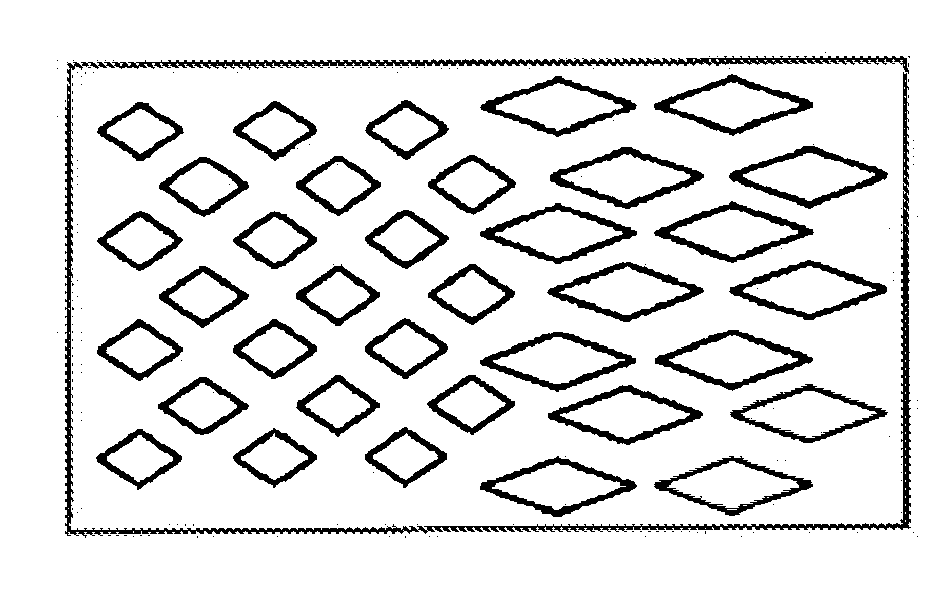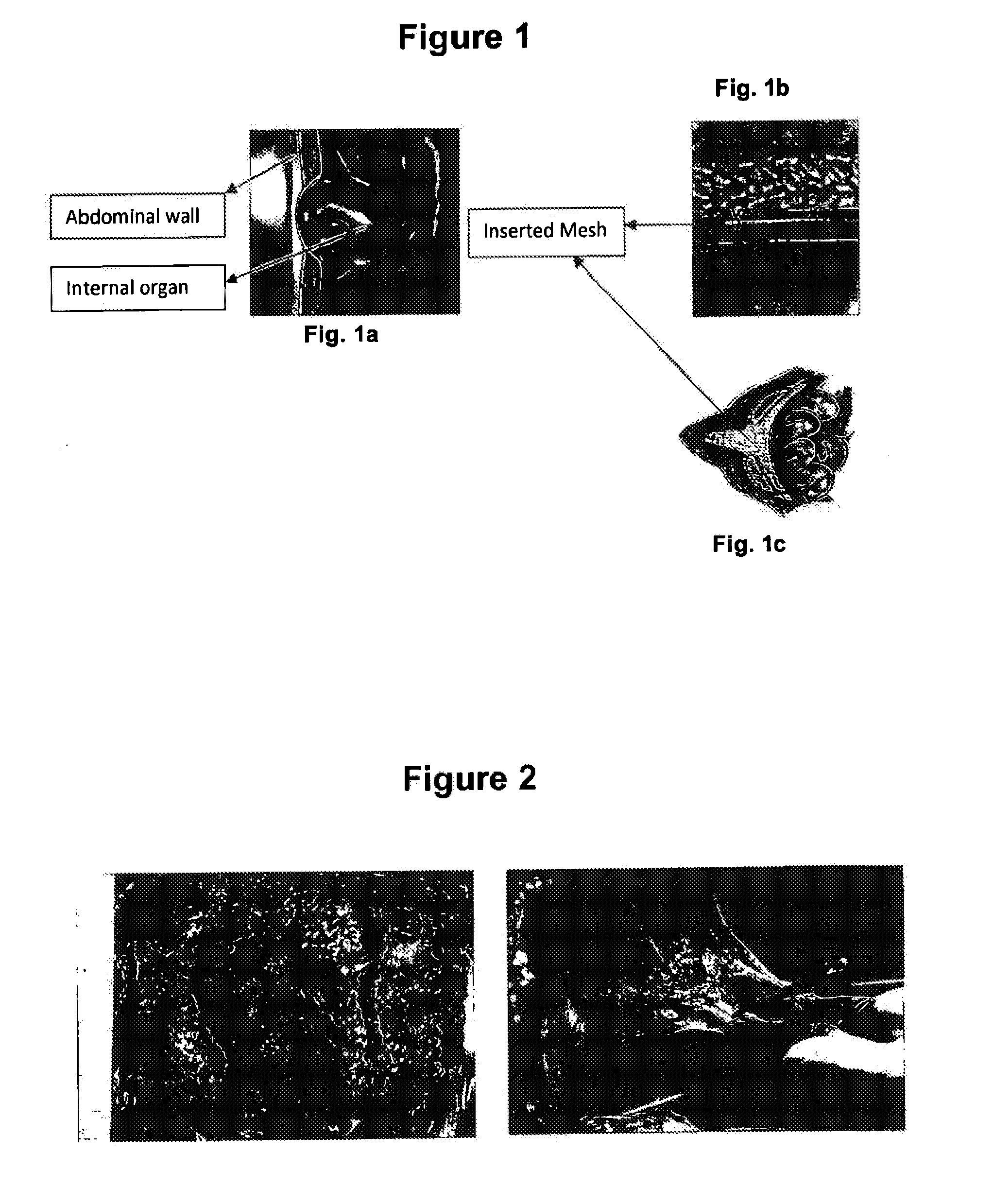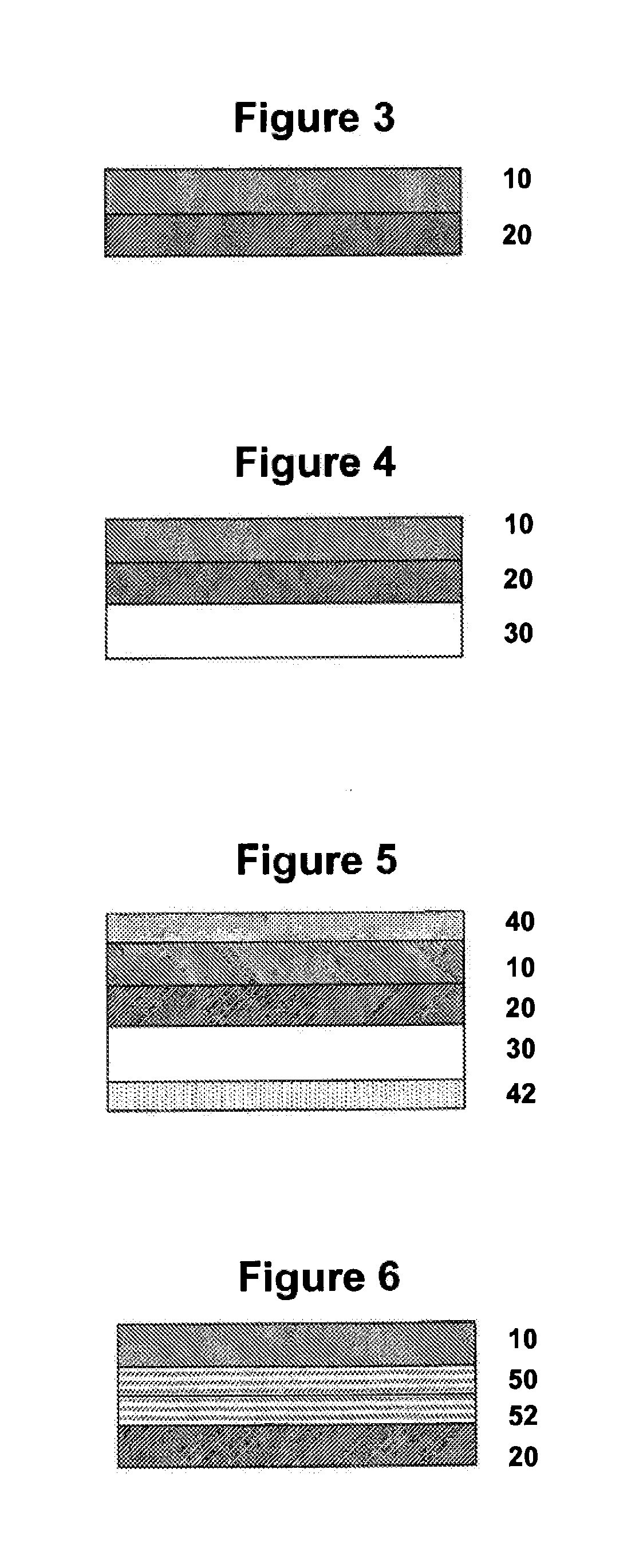Multi-layered surgical prosthesis
a surgical prosthesis and multi-layered technology, applied in the field of prosthesis, can solve the problems of pain and risk of damage, poor tensile strength and elongation of polypropylene, and unsatisfactory polypropylen
- Summary
- Abstract
- Description
- Claims
- Application Information
AI Technical Summary
Benefits of technology
Problems solved by technology
Method used
Image
Examples
Embodiment Construction
[0031]The novel prosthesis according to the first aspect of the invention has a multi-layered sheet structure comprising at least two continuous polymer film layers.
[0032]The term “prosthesis” as used in the present invention means any sheet-like structure which can be a substantially flat sheet made of at least two layers, i.e., two, three, four, five or more consecutive layers of sheet-like format, layered or arranged on each other. Such a substantially flat sheet is often called a two-dimensional structure, even though each sheet has a specific thickness. However, the thickness of the sheet is usually small and is generally not considered as a third dimension. Hence, the term sheet as used to define the main structure of the prosthesis referred to herein is defined to be a body having a shape which substantially extends within a plane (two dimensions), e.g., a patch or foil. Nevertheless, the sheet structure is not limited to a two-dimensionally one, and bodies having a three-dim...
PUM
| Property | Measurement | Unit |
|---|---|---|
| pore size | aaaaa | aaaaa |
| pore size | aaaaa | aaaaa |
| thickness | aaaaa | aaaaa |
Abstract
Description
Claims
Application Information
 Login to View More
Login to View More - R&D
- Intellectual Property
- Life Sciences
- Materials
- Tech Scout
- Unparalleled Data Quality
- Higher Quality Content
- 60% Fewer Hallucinations
Browse by: Latest US Patents, China's latest patents, Technical Efficacy Thesaurus, Application Domain, Technology Topic, Popular Technical Reports.
© 2025 PatSnap. All rights reserved.Legal|Privacy policy|Modern Slavery Act Transparency Statement|Sitemap|About US| Contact US: help@patsnap.com



